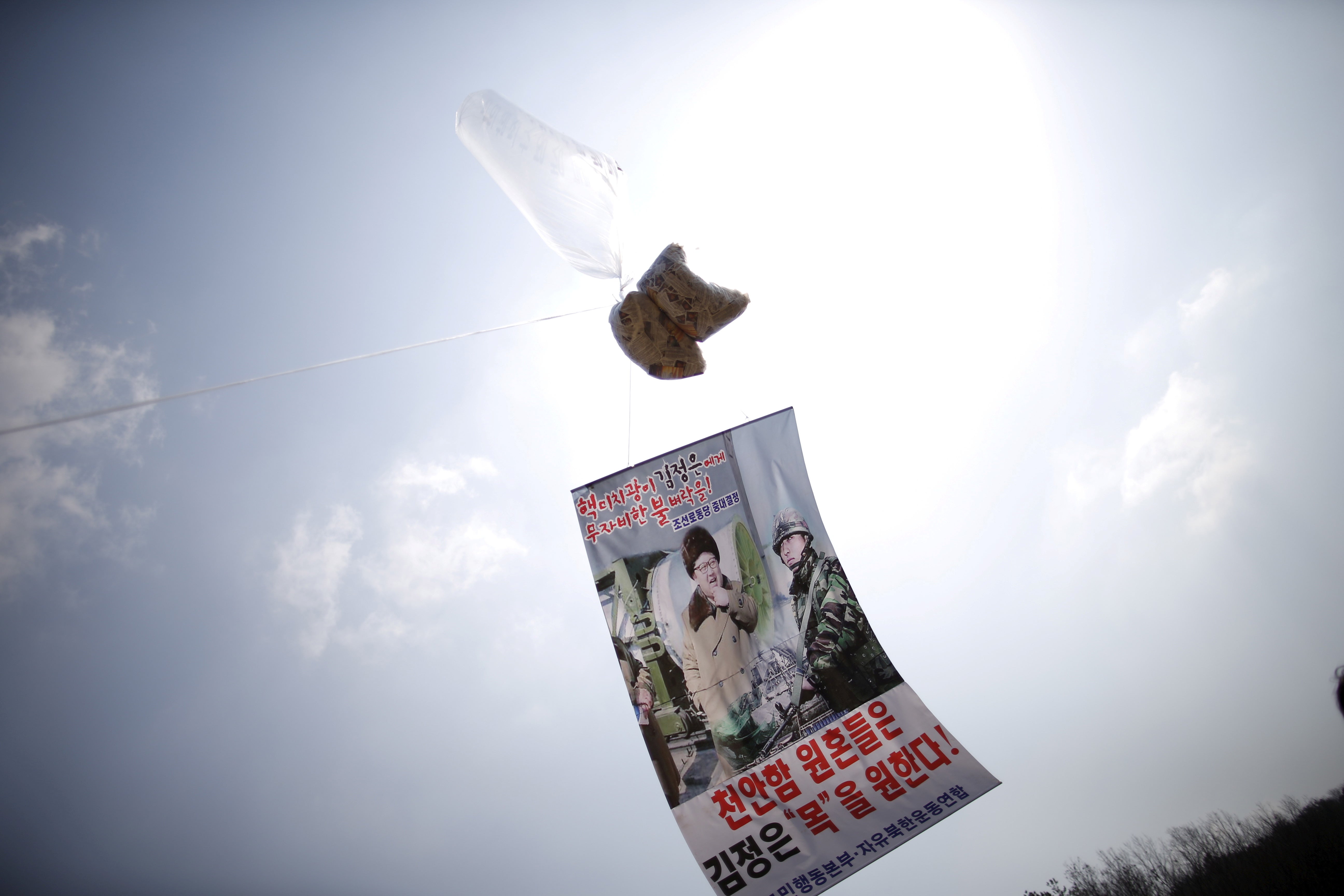South Korea bans activists from flying propaganda balloons over border with North
Activists from both sides of the border send balloons that carry leaflets targeting each other

Your support helps us to tell the story
From reproductive rights to climate change to Big Tech, The Independent is on the ground when the story is developing. Whether it's investigating the financials of Elon Musk's pro-Trump PAC or producing our latest documentary, 'The A Word', which shines a light on the American women fighting for reproductive rights, we know how important it is to parse out the facts from the messaging.
At such a critical moment in US history, we need reporters on the ground. Your donation allows us to keep sending journalists to speak to both sides of the story.
The Independent is trusted by Americans across the entire political spectrum. And unlike many other quality news outlets, we choose not to lock Americans out of our reporting and analysis with paywalls. We believe quality journalism should be available to everyone, paid for by those who can afford it.
Your support makes all the difference.South Korea has criminalised the famous balloon campaigns from its soil targeting North Korea, in spite of strong criticism of pandering to its neighbour and curbing freedom of speech in order to improve ties.
The legislation was passed in parliament on Monday with the support of 187 lawmakers, which includes mostly governing party members who support President Moon Jae-in's policy of engagement with North Korea.
The campaigns involving helium balloons carrying leaflets have been a bitter point of contention between the two Korean nations over the years.
South Korean activists and defectors from North Korea often send balloons that carry leaflets targeting North Korean leader Kim Jong-un over his nuclear ambitions and abysmal human rights record. The balloons have also included USB sticks with information about world news, and US dollars. Observers say Mr Kim saw the leafleting as a threat to his absolute rule over 25 million people, who mostly have little access to outside information.
It is the first time that South Korea's parliament has passed a bill formally banning civilians from floating anti-North Korea leaflets across the tense border. South Korea had previously banned such activities only during sensitive times, and has normally allowed activists to exercise their freedom of speech despite repeated protests from the North.
Lawmakers aligned with Mr Moon say the legislation is intended to avoid unnecessarily provoking North Korea, to ensure the safety of people who live near the border, and to secure stable relations with the North. Opponents accuse the president of sympathising excessively with North Korea or yielding to North Korean threats over the leafleting.
"This is a law that will block the flow of South Korea's great values, the spirit of democracy, freedom and equality, to North Korea," conservative opposition politician Tae Yongho said during a 10-hour filibuster speech attempting to derail the legislation. "It's a law aimed at joining hands with Kim Jong-un and leaving North Korean residents enslaved for good."
Under the legislation, anyone flying leaflets, auxiliary storage devices, or money toward North Korea without government permission can be punished by up to three years in prison or a fine of 30 million won (£20,500). The same penalty can also be applied to blaring loudspeaker broadcasts or placement of giant billboards at border areas, but no civilians in South Korea are known to have been involved in such activities.
A lawyers' group in Seoul earlier said it would file a constitutional appeal if the bill is passed.
Leaders of both countries agreed to halt Cold War-style psychological warfare and lower animosities when they met in April 2018 at the start of now-stalled global diplomacy on North Korea's nuclear programme. Mr Moon's government says that agreement must be applied to civilian leafleting, but opponents argue the accord didn't clearly prohibit it.
Additional reporting by agencies



Join our commenting forum
Join thought-provoking conversations, follow other Independent readers and see their replies
Comments